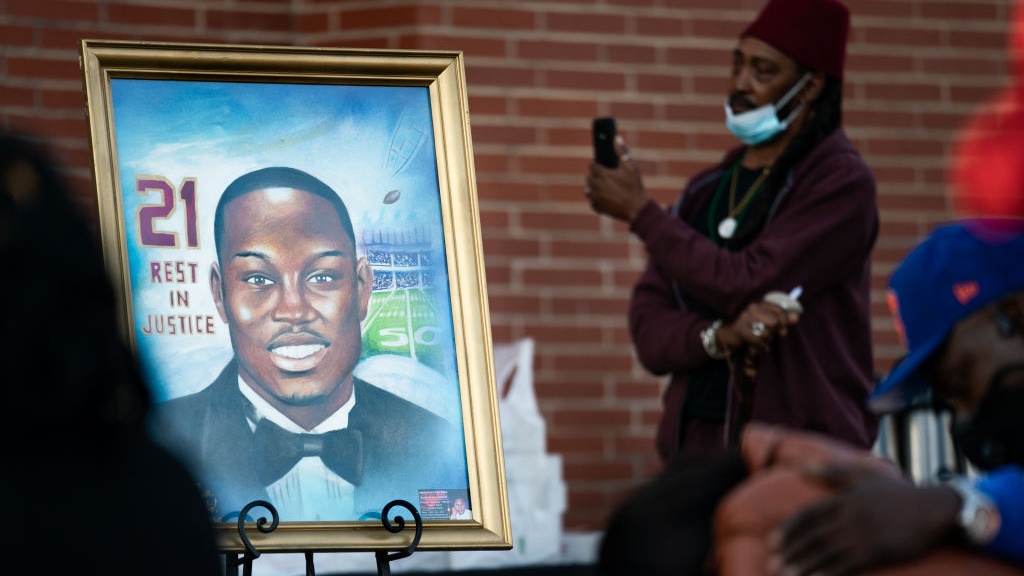A Georgia judge ruled that Ahmaud Arbery‘s mental health records can't be used as evidence in the upcoming trial of his killers.
The ruling from Superior Court Judge Timothy Walmsley will negate the defense team’s efforts to portray the 25-year-old Black man as an aggressive man with a troubled past, ABC News reports.
Walmsley said the court is still obligated to respect the medical privacy of Arbery, who was killed last February when three white men claimed they suspected him of burglary and shot him as he ran through the neighborhood. The judge also dismissed a "highly questionable diagnosis” from a registered nurse who said Arbery suffered from mental illness during his first and only visit to a mental health services provider in 2018. According to the court, the diagnosis could unfairly prejudice a trial jury.
“There is no evidence that the victim was suffering from any mental health issue, or had otherwise decompensated, on February 23, 2020,” the judge stated.
Ahmaud Arbery The trial is scheduled for October. A new lead prosecutor will try the case.
In pretrial motions, defense attorneys argue the jury should hear details of Ahmaud's mental illness & brushes with the law.Prosecutors argue that's irrelevant to what happened that day. pic.twitter.com/dldT7apBZ7
— Vammek Opinion (@Vammek) September 30, 2021
Jason Sheffield, who is representing defendant Travis McMichael, said he still feels confident in his client's case.
"The full truth will come out over the course of trial," the attorney told ABC News. "The jury will see this case is simply about protecting one’s neighbors and oneself.”
McMichael is accused of firing at Arbery after leading the chase with his father, Greg, and their neighbor William "Roddie" Bryan. The men have been indicted on federal charges consisting of one count each of interference of rights and attempted kidnapping, Blavity previously reported.
In September, the court delivered another setback for the defendants, saying they are not allowed to present evidence of the young man’s past encounters with the law. Attorneys were aiming to detail Arbery’s past legal troubles, the Associated Press reports.
Walmsley said the evidence could unfairly “lead the jury to believe that although Arbery did not apparently commit any felony that day, he may pose future dangerousness in that he would eventually commit more alleged crimes, and therefore, the Defendants’ actions were somehow justified.”
“The character of victim is neither relevant nor admissible in murder trial,” the judge wrote.
Jury selection for the case is scheduled to begin on Oct. 18.

